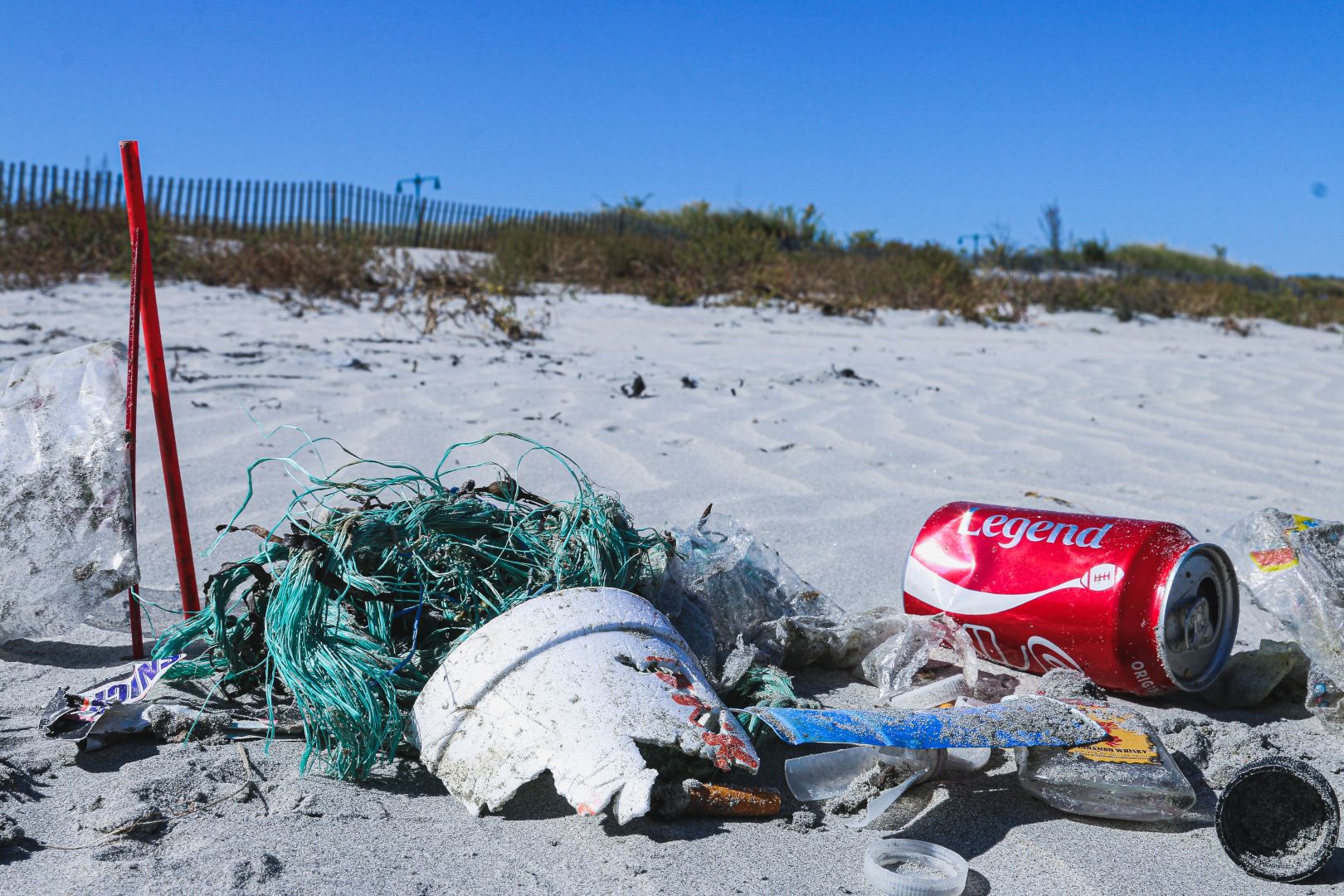The aquatic food web has been seriously compromised by chemical pollution and climate change.
This article originally appeared on Climate and Capitalism
A report released today by the International Pollutants Elimination Network (IPEN) and the National Toxics Network (NTN) says that rising levels of chemical and plastic pollution are major contributors to declines in the world’s fish populations and other aquatic organisms.
Dr. Matt Landos, co-author of the report, says that many people erroneously believe that fish declines are caused only by overfishing. “In fact, the entire aquatic food web has been seriously compromised, with fewer and fewer fish at the top, losses of invertebrates in the sediments and water column, less healthy marine algae, coral, and other habitats, as well as a proliferation of bacteria and toxic algal blooms. Chemical pollution, along with climate change itself a pollution consequence, are the chief reasons for these losses.”
Aquatic Pollutants in Oceans and Fisheries documents the numerous ways in which chemicals compromise reproduction, development, and immune systems among aquatic and marine organisms. It warns that the impacts scientists have identified are only likely to grow in the coming years and will be exacerbated by a changing climate.
As co-author Dr. Mariann Lloyd-Smith points out, the production and use of chemicals have grown exponentially over the past couple of decades. “Many chemicals persist in the environment, making environments more toxic over time. If we do not address this problem, we will face permanent damage to the marine and aquatic environments that have nourished humans and every other life form since the beginning of time.”
The report identifies six key findings:
- Overfishing is not the sole cause of fishery declines. Poorly managed fisheries and catchments have wrought destruction on water quality and critical nursery habitat as well as the reduction and removal of aquatic food resources. Exposures to environmental pollutants are adversely impacting fertility, behavior, and resilience, and negatively influencing the recruitment and survival capacity of aquatic species. There will never be sustainable fisheries until all factors contributing to fishery declines are addressed.
- Chemical pollutants have been impacting oceanic and aquatic food webs for decades and the impacts are worsening. The scientific literature documents man-made pollution in aquatic ecosystems since the 1970s. Estimates indicate up to 80% of marine chemical pollution originates on land and the situation is worsening. Point source management of pollutants has failed to protect aquatic ecosystems from diffuse sources everywhere. Aquaculture is also reaching limits due to pollutant impacts with intensification already driving deterioration in some areas, and contaminants in aquaculture feeds affecting fish health.
- Pollutants including industrial chemicals, pesticides, pharmaceuticals, heavy metals, plastics and microplastics have deleterious impacts to aquatic ecosystems at all trophic levels from plankton to whales. Endocrine disrupting chemicals, which are biologically active at extremely low concentrations, pose a particular long-term threat to fisheries. Persistent pollutants such as mercury, brominated compounds, and plastics biomagnify in the aquatic food web and ultimately reach humans.
- Aquatic ecosystems that sustain fisheries are undergoing fundamental shifts as a result of climate change. Oceans are warming and becoming more acidic with increasing carbon dioxide deposition. Melting sea ice, glaciers and permafrost are increasing sea levels and altering ocean currents, salinity and oxygen levels. Increases in both de-oxygenated ‘dead zones’ and coastal algal blooms are being observed. Furthermore, climate change is re-mobilizing historical contaminants from their ‘polar sinks.’
- Climate change and chronic exposures to pesticides all can amplify the impacts of pollution by increasing exposures, toxicity and bioaccumulation of pollutants in the food web. Methyl mercury and PCBs are among the most prevalent and toxic contaminants in the marine food web.
- We are at the precipice of disaster, but have an opportunity for recovery. Progress requires fundamental shifts in industry, economy and governance, the cessation of deep-sea mining and other destructive industries, and environmentally sound chemical management, and true circular economies. Re-generative approaches to agriculture and aquaculture are urgently required to lower carbon, stop further pollution, and begin the restoration process.


I defy anyone — from Elon Musk and Larry Page to Joe Biden and the pope — to read this article and give me one reason why industrial humans should exist.
Two quotes come to mind. The first is Wellington’s assessment of his troops, on the eve of the Battle of Waterloo. It now applies to the vast majority of our pathetic species — drunk on power, with no skills but death and destruction.
“They’re the scum of the Earth, enlisted for drink. I don’t know what they’ll do for the French, but by God they scare me.”
The second is from National Lampoon’s “Deteriorata,” which was meant at the time as a joke. But the Universe isn’t laughing. If there is a universal mind at all, it’s raging and devising a way to wipe us out. It’s just trying to think of something that would kill off the one toxic species, without harming all the others.
“You are a fluke of the Universe. You have no right to be here. And whether you know it or not, the Universe is laughing behind your back.”
Of course all pollution is bad and harms the oceans. But the biggest cause of the decline of fish and other sea life is industrial fishing. See the film Seaspiracy, for example. I stopped eating fish after I saw it, and won’t resume unless I can be confident that something like the Monterey Bay Aquarium’s Seafood Watch program’s information is confirmed by credible sources, in other words not fishermen.